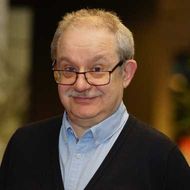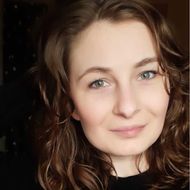Work by graduates of the HSE undergraduate programme in sociology took first place at the Russian national undergraduate and graduate student academic research competition in the social sciences category. In addition, research by a graduate of the HSE St. Petersburg won an audience’s choice award.
81th issue of Journal of Economic Sociology (vol. 17, no 4, 2016) has been published.
On September 11-16 the 9th International Conference on Social Science Methodology was held in Leicester, UK. The event was organised by the International Sociological Associaton (ISA) Research Committee on Logic and Methodology (RC33). The conference takes place every four years and brings together over 500 researchers from Europe, North America and South East Asia. Staff members of the School of Sociology - Inna Devyatko, Aigul Mavletova, Olga Savinskaya and Tatiana Khavenson - took part in the event.
The World Association for Public Opinion Research’s (WAPOR) annual regional conference ‘Survey Research and the Study of Social and Cultural Change’ kicks off at HSE on September 15, 2016.
Monika Wohlrab-Sahr, Professor of Cultural Sociology at the University of Leipzig in Germany, began her involvement with HSE when she started working with two young scholars – Christian Fröhlich, an Assistant Professor at HSE and a former PhD student of hers, and Rafael Mrowczynski, who has served as a DAAD-lecturer at HSE. Ahead of her upcoming visit to Moscow, where she will present her work on ‘Multiple Secularities’ and give a seminar on Qualitative Methods, Professor Wohlrab-Sahr spoke with the HSE news service about her work, her academic interests, and her views on the key attributes researchers need today.
In July, an international conference ‘Active Communities, Social-Economy Challenges and Local Knowledge’ and a summer school on ‘Sustaining Mutuality in Times of Crisis: Building Knowledge Alliances in Communities’ were held on Paros, Greece. Graduates of the master’s programme ‘Sociology of Public Sphere and Social Communications’ led by Nikita Pokrovsky, Professor at the School of Sociology, took part in these events.
Our session “Christianity in diaspora,” discussion
Photo: Igor Mikeshin
Our session “Christianity in diaspora,” discussion
Photo: Igor Mikeshin
This summer Helsinki hosted the large annual conference of the European Association for the Study of Religions. Iliyana Angelova (University of Oxford / University of Tuebingen) and Ksenia Medvedeva (HSE) share their impressions from the event and reflect on their experiences of having convened a session at an international conference of such a scale.
An elderly person can be described as aging successfully when they maintain good health and engage in fulfilling social activities. According to Larisa Kosova, Director of the HSE Joint Economic and Social Data Archive, poor health and a lack of savings often prevent older people in Russia from enjoying retirement.
Professor Martin Carnoy of Stanford University and visiting professor at the Higher School of Economics, and Tatiana Khavenson, Research Fellow at the HSE Institute of Education, were among the authors of the report ‘An Analysis of the Impact of Education Policies on Student Achievement in the United States’, which was recently presented in Washington, DC. The key provisions of this report are of use when it comes to analyzing the situation in Russian education.
Parents of school students in Moscow tend to believe that test assignments in two major final exams—the Basic State Exam (BSE) and the Unified State Exam (USE)—are too complex and teachers fail to properly prepare students for the finals; this negative attitude, which appears to be a widely-held stereotype not necessarily supported by evidence, is formed long before the exams come round. However, according to a study by Alina Pishnyak and Natalia Khalina, once the exams are over, families no longer consider them so hard to pass.












